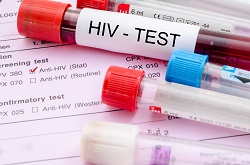Two shots in one: Tackling HIV and Hepatitis C infections
The vaccines, developed by scientists working on the ground breaking PEACHI project, combine antiretroviral therapies and vaccines that stimulate targeted immune responses. The HCV virus, which can lead to chronic liver disease and cancer, is a leading cause of death in HIV co-infected individuals. An estimated 2.3 million people globally are co-infected with HIV and HCV. The EU-funded PEACHI project sought to address this challenge by building upon the success of antiretroviral therapies, which have led to a dramatic improvement in life expectancy for people with HIV infection. While the drugs do not kill or cure the virus, they can prevent the growth of the virus when taken in combination. When the virus is slowed down, the danger of further HIV complications is reduced. In order to specifically address co-infections of HCV, the project team sought to combine proven antiretroviral HIV drugs with modified vaccines targeted at HCV. The aim of these vaccines has been to better focus the immune response of people living with HIV. Results have been positive. Findings presented at the International Liver Congress 2016 in Barcelona, Spain, suggest that the approach being pioneered by the PEACHI project is indeed effective in boosting the immune system against both HCV and HIV viruses. Furthermore, the co-administration of HCV and HIV components of the boost does not impair specific T-cell responses. The success of the project means that a combined vaccination against the Hepatitis C virus and HIV is now a step closer to commercialisation, and the possibility of vaccinating a single individual against both diseases opens up huge possibilities for rolling back epidemics of disease and co-infection. Whilst vaccination is the most effective way to prevent many infectious diseases, developing effective vaccines against HIV and Hep C has proved extremely challenging. One of the main reasons for this is the enormous variation in Hep C and HIV types around the world, which is caused by the extraordinary ability of the viruses to modify their genes. To begin with, PEACHI scientists focused on vaccine development and the optimisation of clinical trial protocols, together with improving training in good clinical practice. The development of new immunology assays for analysing clinical trial samples may open new avenues for research into immune control of HIV-1 and HCV infections. Following on from this, the safety and efficacy of vaccines were then tested in healthy individuals without HIV-1 or HCV infections. Single-cell analyses were performed to assess the quality of vaccine-induced T cell responses. The PEACHI consortium has also been working on novel vaccine technology to improve the effectiveness of existing vaccines. This approach involves the use of vaccine-encoded antigens (molecules capable of inducing an immune response), which are fused to HCV proteins. The objective is to enhance HCV antigen presentation in the immune cells of HIV patients. The four year PEACHI project is due for final completion at the end of January 2017. For further information please visit: PEACHI project website(opens in new window)
Countries
United Kingdom



